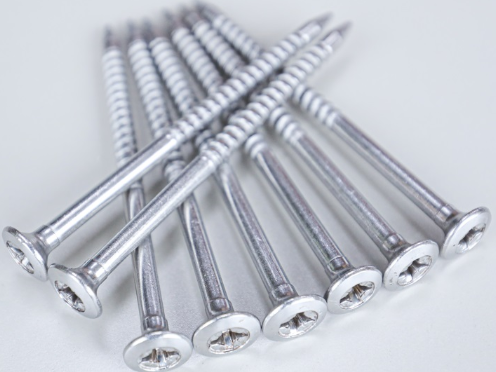Copyright © 2021 Kinfast All rights reserved. 粤ICP备06034726号 Site Map Powered by iwonder.cn
- TEL: +86-755-8347-9123
- E-MAIL: info@kfproduct.com
Stainless steel screws are used in a huge amount in our daily life, but the common problems and their solutions in daily use are not widely known, such as anti-loosening, rusting, and breakage. If the screw is too large, it will cause destructive damage to the equipment components. The following is a list of these common problems and the methods to prevent them.
Anti-loosening of stainless steel screws
To put it simply, the stainless steel screw should be used on the product material so that the stainless steel screw will not fall off lightly. The screws are required to be more tightly connected with the product material. For the solution of stainless steel screw anti-loosening, there are the following two solutions.
1. Use the resilience of special materials, such as engineering resin materials, which have good resilience. Attach it to the stainless steel screw thread. Make it mechanically rub against the nut, or material product. Generate vibration and absolute resistance. Completely solve the problem of loose screws.
2. Apply a layer of glue on the stainless steel screw thread, so-called dispensing. This glue is called drop-resistant glue. This glue has good properties such as high stickiness and non-toxicity. This glue is applied to stainless steel screws, and when dry, it adheres extremely well. The stainless steel screw thread can be combined with the nut thread, or after the product threaded hole is joined, resulting in a super tightening effect.

1. The attachment of dust or dissimilar metal particles, in the humid air, the attachment and the condensed water of the stainless steel screw connect the two into a micro-battery, which triggers an electrochemical reaction and destroys the protective film
2. Organic juices (such as vegetables, noodle soup, sputum, etc.) adhere to the surface of stainless steel screws. In the presence of water and oxygen, organic acids are formed, and organic acids will corrode the metal surface for a long time.
3. The surface of stainless steel screws contains acids, alkalis and salts (such as alkali water and lime water splashing from decoration walls), causing localized corrosion.
4. In the polluted air (such as the atmosphere containing a large amount of sulfide, carbon oxide and nitrogen oxide), when encountering condensed water, it will form the liquid point of sulfuric acid, nitric acid and acetic acid, causing chemical corrosion.
The above conditions can cause damage to the protective film on the surface of stainless steel screws and cause rust. Therefore, in order to ensure that the surface of the stainless steel screw is permanently bright and not rusted, we have to do cleaning on its surface.
Generally speaking, stainless steel screws rarely break. Because the stainless steel screw wire itself is relatively hard. But under certain circumstances, stainless steel screws can still break. So what are the main reasons for the fracture of stainless steel screws?
1. The quality of raw materials used for stainless steel screws is poor, and the quality of stainless steel screws is not good. The impurities will result in insufficient hardness of stainless steel screws.
2. The production process of stainless steel screws. For example, stainless steel screws with eccentric head and eccentricity, and the Q value is too deep and the R position design is too small during the down punching operation during production.
3. The customer uses too much force when using stainless steel screws. It is generally recommended to perform a torque test on stainless steel screws to see what the minimum breaking force is, and then adjust the corresponding torque.
The above three reasons are the main reasons for the fracture of stainless steel screws. There are various problems of screw breakage. If none of the above is the cause of the breakage, you should check step by step to find the final cause.
For more information about stainless screws, please feel free to contact us.